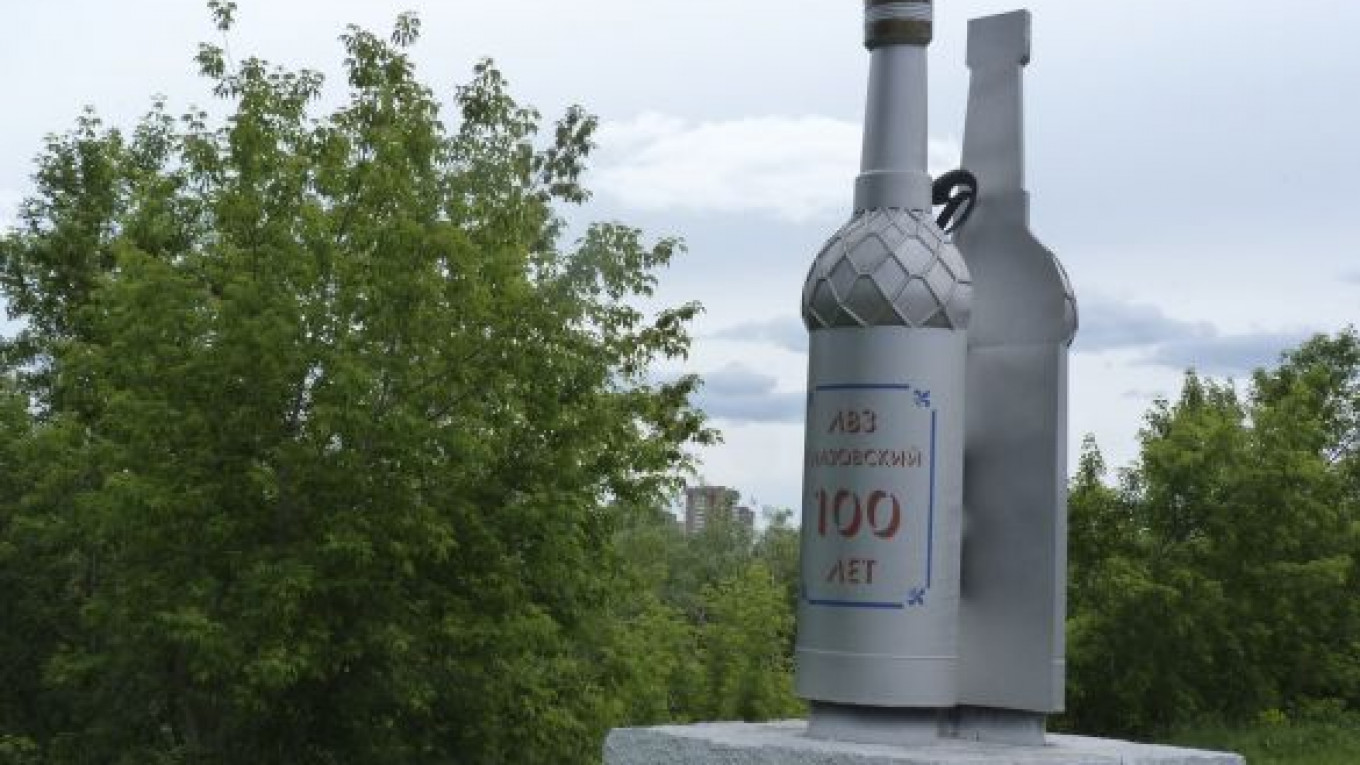A monument to a bottle of vodka was toppled over fears that it could be seen as an illegal advertisement for the country’s favorite drink.
The 3-meter-tall metal sculpture had become a local landmark in the Urals town of Glazov, in the Udmurt republic 1,200 kilometers east of Moscow. But residents woke up one morning last week to discover it had disappeared, leaving only an empty plinth.
The bottle’s fall reflects a new, sober spirit of the age in Russia under President Vladimir Putin, a judo black belt who rides, flies and dives for the TV cameras but is rarely seen raising a glass — unless to toast a billion-dollar oil deal.
Putin signed a ban on all alcohol advertising in July, while other laws have banned sales of alcohol from street kiosks or after 11 p.m at night.
Initial reports suggested that local authorities were behind the disappearance of the memorial, erected 13 years ago to mark the centenary of the local Glazovsky spirits factory.
Among other products, the factory produces a vodka brand called Kalashnikov. The famous weapons designer is a native son of the Udmurt republic.
But factory bosses later told local media outlets that they had removed the monument from public view over fears that it could run afoul of the strict new advertising laws.
“The bottle monument … might be considered an advertisement for our products. So the decision was made to remove it,” said Dmitry Pozdeyev, the head of the factory’s legal department. The sculpture was moved into the factory.
Russian media ironically suggested that anti-drinking campaigners have more work left to do in the region.
Related articles:
A Message from The Moscow Times:
Dear readers,
We are facing unprecedented challenges. Russia's Prosecutor General's Office has designated The Moscow Times as an "undesirable" organization, criminalizing our work and putting our staff at risk of prosecution. This follows our earlier unjust labeling as a "foreign agent."
These actions are direct attempts to silence independent journalism in Russia. The authorities claim our work "discredits the decisions of the Russian leadership." We see things differently: we strive to provide accurate, unbiased reporting on Russia.
We, the journalists of The Moscow Times, refuse to be silenced. But to continue our work, we need your help.
Your support, no matter how small, makes a world of difference. If you can, please support us monthly starting from just $2. It's quick to set up, and every contribution makes a significant impact.
By supporting The Moscow Times, you're defending open, independent journalism in the face of repression. Thank you for standing with us.
Remind me later.






